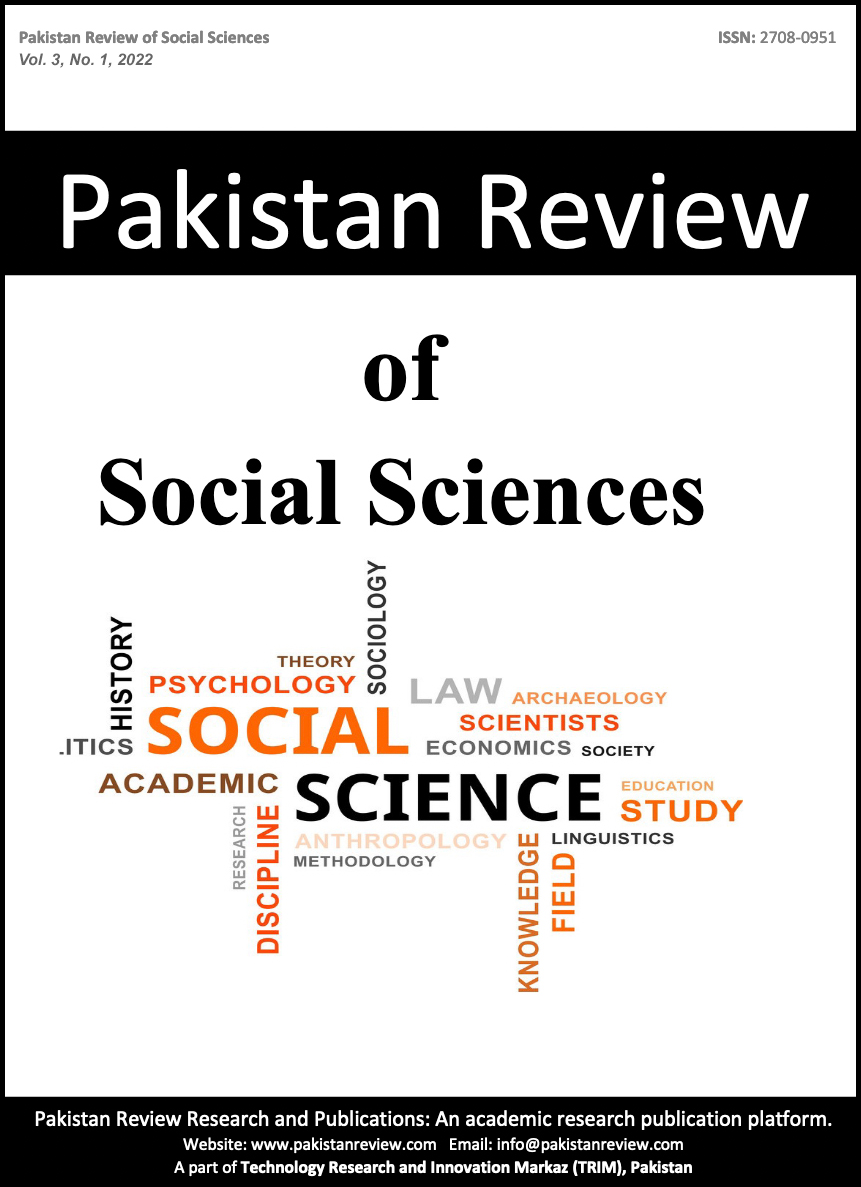Impact of Financial Instability on the Promotion of Field Hockey of Pakistan
Keywords:
Promotion, Field Hockey, Financial Instability, Players, PakistanAbstract
The main purpose of this present research was to determine the impact of financial instability on promotion of field hockey. The research methodology was based on quantitative research approach. The present study was consisted on the cross-sectional research design. The population of the study was institutional players of field hockey of South Punjab. Self-administered questionnaire was employed to collect the survey data. A total number of 200 questionnaires were distributed among hockey players of diverse clubs, schools, colleges, and universities of Bahawalpur. Descriptive statistics (percentage, frequency, and standard deviation), Pearson’s correlation analysis and regression analysis were utilized to analyze the collected survey data. Collected data was statistically edited in SPPS v-XXVI. Results of correlation coefficient revealed positive and highly significant (0.01) relationship between financial instability and the promotion of field hockey. Findings of the present study indicated that independent construct (financial instability) had positive and significant impact on the dependent variable (promotion of field hockey). It was concluded that field hockey needs to develop at grass root level to enrich the hockey institutions financially and government should take appropriate steps to uplift and revive the past glories of the national sport of Pakistan.
Downloads
Published
Issue
Section
License
Submission declaration
Authors retain the copyright to their work and grant the Pakistan Review of Social Sciences (PRSS) the right of first publication under a Creative Commons Attribution 4.0 International (CC BY 4.0) license. This license allows others to share, adapt, and reuse the work for any purpose, including commercial use, as long as appropriate credit is given to the original authors and the journal.
By submitting a manuscript, authors confirm that the work has not been published previously (except as an abstract, lecture, or academic thesis), is not under review elsewhere, and has been approved by all authors and relevant authorities. Once accepted, the article will be openly accessible under the CC BY 4.0 license, ensuring wide dissemination and reuse with proper attribution.






